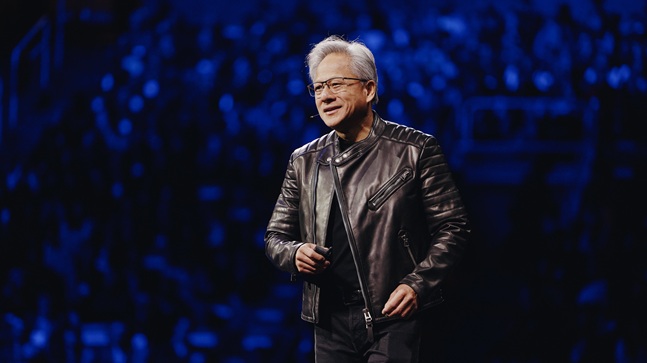Nvidia CEO Jensen Huang (pictured) warned that the UK may be falling behind on the infrastructure needed to capitalise on its AI potential, as Prime Minister (PM) Keir Starmer unveiled a hefty investment to boost the country’s compute capacity.
Speaking at the opening of London Tech Week today (9 June), Huang said the UK had the right conditions to lead in AI innovation, calling it a “Goldilocks circumstance”, but also pointed out that it remains “the largest AI ecosystem in the world without its own infrastructure”.
The executive went on to explain that the opportunity comes from AI quickly becoming a foundational element of society. “AI is a technology but is also an infrastructure because it affects so many industries simultaneously,” he said. “Because this technology is so broad and so transformative to every single industry, it will be considered infrastructure just as electricity was.”
Moments earlier in a keynote address, Starmer confirmed a new £1 billion investment to scale the UK’s compute power by a factor of 20 to bolster the country’s ambitions to become an “AI maker, not just an AI taker”. “More importantly, it means we have the digital infrastructure we need to make sure AI improves our public services,” Starmer added.
AI moves
Cloud providers Nscale and Nebius are moving to support that goal. Nscale revealed plans to deploy 10,000 Nvidia Blackwell GPUs by 2026, while Nebius is launching its first UK-based AI factory, bringing 4,000 GPUs online to support research, public services, and the NHS.
Nvidia is also stepping up its UK footprint. It announced a new AI Technology Centre in Bristol to train developers in AI model building, robotics, and advanced computing.
As part of the country’s AI push, Nvidia also launched a new body, the Sovereign AI Industry Forum, to bring together UK heavyweights including BT, BAE Systems, National Grid, and Standard Chartered to drive AI adoption and infrastructure investment.
The chipmaker is also supporting the Financial Conduct Authority’s digital sandbox for financial companies to test-run AI using Nvidia’s tech, and assisting in telecoms research with AI-native wireless tools.
Despite the activity, the UK still faces a large funding gap. According to Stanford University’s 2025 AI Index Report, the UK attracted $4.5 billion in private AI investment last year, a figure well behind the US at $109.1 billion and China at $9.3 billion.
